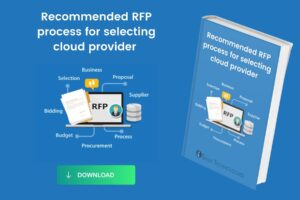In the era of cloud computing, organizations are leveraging the power of DevOps practices to achieve rapid, reliable, and scalable software delivery.
A Cloud DevOps Architect plays a critical role in designing and implementing high-performance cloud environments. This article explores the responsibilities of a Cloud DevOps Architect and discusses key aspects to consider when designing such environments.
Understanding the Role of a Cloud DevOps Architect
What is a Cloud DevOps Architect?
A Cloud DevOps Architect is a professional responsible for designing and implementing cloud-based DevOps solutions. They bridge the gap between software development and IT operations, ensuring efficient collaboration and integration. Cloud DevOps Architects leverage cloud computing technologies and DevOps methodologies to design scalable, secure, and resilient cloud environments that facilitate seamless software development, deployment, and operations.
Key Responsibilities of a Cloud DevOps Architect
Cloud DevOps Architects have several key responsibilities, including:
- Collaborating with development and operations teams to understand business requirements and technical constraints.
- Designing and implementing cloud-based infrastructure architectures that support continuous integration, delivery, and deployment.
- Automating and orchestrating the provisioning and configuration of cloud resources using infrastructure-as-code (IaC) principles.
- Defining and implementing CI/CD pipelines to enable fast and reliable software releases.
- Ensuring the security, scalability, and performance of cloud environments.
- Establishing monitoring and logging frameworks to enable proactive identification and resolution of issues.
- Staying updated with emerging cloud technologies, DevOps practices, and industry trends.
Designing High-Performance Cloud Environments
When designing high-performance cloud environments, Cloud DevOps Architects need to consider various factors to ensure optimal functionality, scalability, and reliability.
Infrastructure as Code (IaC)
Infrastructure as Code (IaC) is a fundamental principle in cloud environments. It involves defining infrastructure configurations using code, enabling automation, version control, and reproducibility. Cloud DevOps Architects leverage tools like Terraform, AWS CloudFormation, or Azure Resource Manager to define and manage infrastructure resources, such as virtual machines, networks, and storage, using declarative code.
Continuous Integration and Continuous Deployment (CI/CD)
CI/CD practices enable organizations to achieve faster and more reliable software delivery. Cloud DevOps Architects design CI/CD pipelines that automate the build, testing, and deployment processes. This involves integrating code changes from multiple developers, running automated tests, and deploying applications to the cloud environment. Tools like Jenkins, GitLab CI/CD, or AWS CodePipeline are commonly used to implement CI/CD pipelines.
Scalability and Elasticity
Cloud environments offer the advantage of scalability and elasticity, allowing resources to dynamically adjust based on demand. Cloud DevOps Architects design architectures that can scale horizontally or vertically to accommodate varying workloads. They leverage auto-scaling groups, load balancers, and container orchestration platforms like Kubernetes to ensure optimal resource utilization and performance.
Automation and Orchestration
Automation and orchestration are key aspects of efficient cloud environments. Cloud DevOps Architects implement automation frameworks and tools to streamline resource provisioning, configuration management, and application deployment. They leverage tools like Ansible, Chef, or Puppet to automate repetitive tasks and ensure consistent and reliable deployments across environments.
Monitoring and Logging
Monitoring and logging are critical for maintaining the health and performance of cloud environments. Cloud DevOps Architects design monitoring systems that capture and analyze relevant metrics, logs, and events. They utilize tools like AWS CloudWatch, Azure Monitor, or Prometheus to gain insights into resource utilization, application performance, and potential issues. Proactive monitoring enables timely detection and resolution of issues, ensuring optimal system performance.
Skills and Knowledge Required
To excel as a Cloud DevOps Architect, a combination of technical skills and knowledge is essential.
Cloud Computing and Services
Cloud DevOps Architects should have a deep understanding of cloud computing concepts and services. They should be proficient in a specific cloud platform like AWS, Azure, or Google Cloud. Knowledge of cloud services such as virtual machines, storage, networking, containers, serverless computing, and databases is crucial for designing optimal cloud architectures.
DevOps Methodologies and Tools
Cloud DevOps Architects need a strong grasp of DevOps principles, methodologies, and tools. They should be well-versed in version control systems (e.g., Git), CI/CD tools (e.g., Jenkins, GitLab CI/CD), configuration management tools (e.g., Ansible, Chef, Puppet), and containerization technologies (e.g., Docker, Kubernetes). Understanding agile development practices and collaboration tools is also important.
System Architecture and Design
In-depth knowledge of system architecture and design principles is necessary for designing scalable and reliable cloud environments. Cloud DevOps Architects should understand distributed systems, microservices architectures, network design, security principles, and performance optimization techniques.
Security and Compliance
Security is a critical consideration when designing cloud environments. Cloud DevOps Architects should have a solid understanding of cloud security best practices, identity and access management, data encryption, network security, and compliance requirements. They should stay updated with the latest security threats and mitigation strategies.
Conclusion
A Cloud DevOps Architect plays a vital role in designing high-performance cloud environments that enable organizations to achieve efficient and reliable software delivery.
By leveraging cloud computing technologies, DevOps methodologies, and best practices, Cloud DevOps Architects can design scalable, secure, and resilient cloud architectures. Their expertise in infrastructure as code, CI/CD, scalability, automation, and monitoring ensures the successful implementation of cloud-based DevOps solutions.





